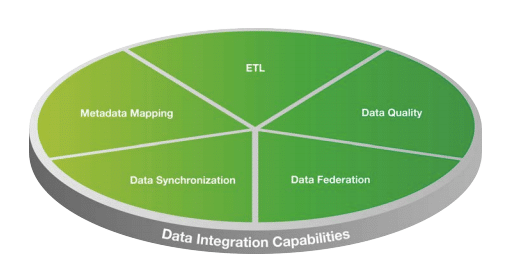ETL Tools: In-depth Guide
ETL Tools:
ETL, or Extract, Transform, Load is the process of integrating data from multiple applications (systems), converting them to a single format or structure and then loading the data into the target, often a data warehouse. This process is essential for data analysis, business intelligence, and other related tasks – particularly in businesses with a wide range of data sources and formats to consider.
Selecting the right tool to do so is integral to ensuring the success of not only the specific action, but also for the overall goals and efforts of the business. To learn more about ETL and get a better understanding of how businesses use it.
To get in-Depth knowledge on Informatica you can enroll for a live demo on Informatica online training
The ETL Ecosystem In the past it was common for businesses to have several ETL tools that operated independently of one another. Today, it is becoming increasingly common to have a single ETL tool as part of a greater data integration effort. To do so allows these processes to be seen as contributing to the overall profitability of the organization – instead of as a siloed data project.

To help businesses who are looking towards a greater data integration strategy, it can be helpful to isolate single components to better understand their part in the whole – as is the case with ETL tools.
Choosing an ETL Solution The world of ETL tools has greatly evolved over the years to include a much wider range of capabilities and setups. Many come in cloud based versions, giving a greater degree of scalability, availability, and security; with lower infrastructure costs
There are a few criteria that can help you when evaluating potential ETL tools, it is important to decide which of these will be most essential for your business needs. However, generally speaking some of the most important factors to consider include:
TASKS: **Depending on the needs of your business, the importance of certain functionalities over others will vary. Day-to-day tasks such as data conversion, joining records, filtering, grouping, and combining data should be included with any tool. Some come with the capacity for more advanced tasks such as web methods, rebuilding indexes, handling arrays, and processing unstructured data..Learn more from **informatica online course
CONNECTIONS: Any ETL solution must be able to connect to Excel, SharePoint, FIX, Salesforce, Hadoop, FTP, and others. Without this functionality, the processing power of the tool is irrelevant as it will not be usable. However, keep in mind that all tools can connect to a database/RDBMS, but only some have native client drivers that enable greater performance when compared with ODBC.
**WORKFLOW: **Being able to create effective workflows to organize and connect all of these tasks is key. Some of the most important workflows to establish include: constraint (criteria), branching, grouping, and looping (repeating).
**EXECUTING: **Being able to understand how an ETL package runs is essential – this includes how long it takes, when it started (and ended), who began the progress, if it was successful or not, and in the case of failure, what the error message received was. Execution also includes the capacity to run at predetermined times, restart in the case of failure, and limit the duration of the execution.
PERFORMANCE: This again is where the needs of your business will greatly impact your decision. For those who need greater capacity, many ETL tools include features such as bulk loading or the ability to cache the lookup table, to name a few.
**MANAGEMENT: **This can mean anything from being able to configure packages to run at the same time, to setting alert frequency, and creating different users and setting their permissions.
The value of each of these criteria against each other will vary depending on the size of your business, the goals you have for your data, and other similar factors.
I hope you reach a conclusion about Data Warehousing in Informatica. You can learn more about Informatica from online Informatica training